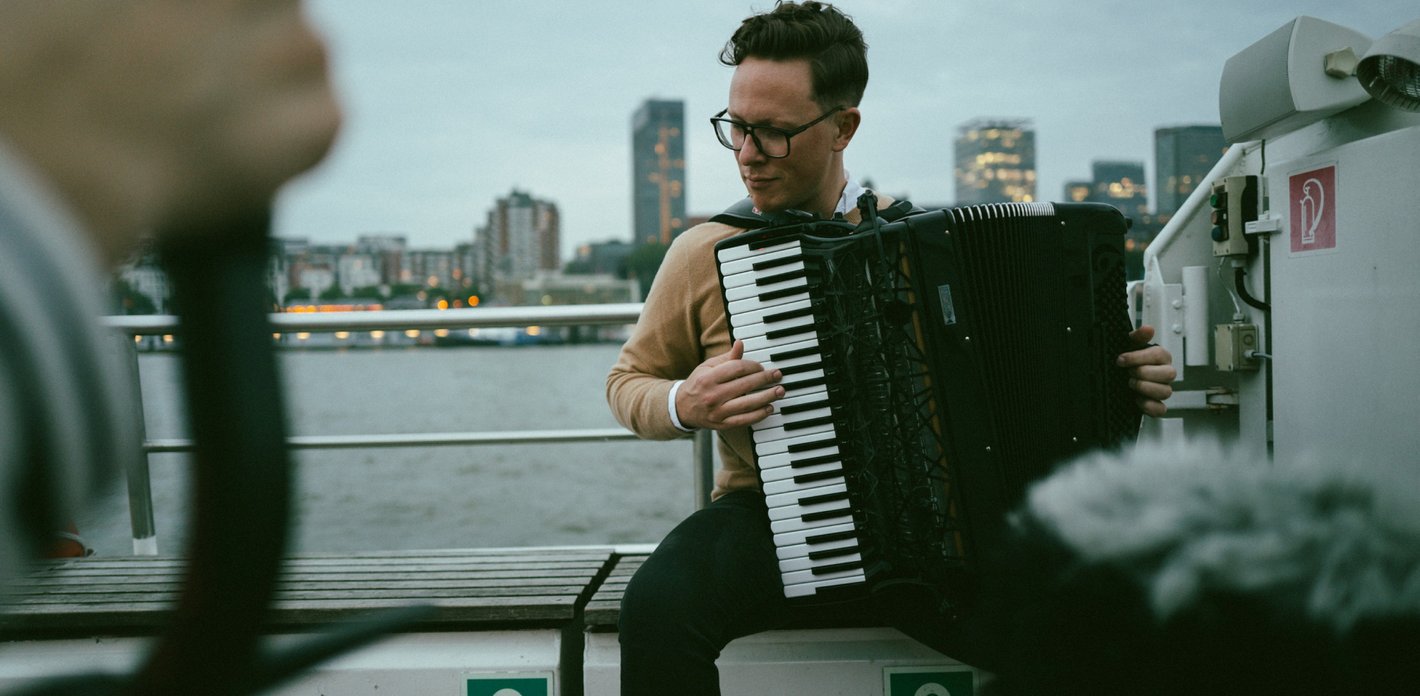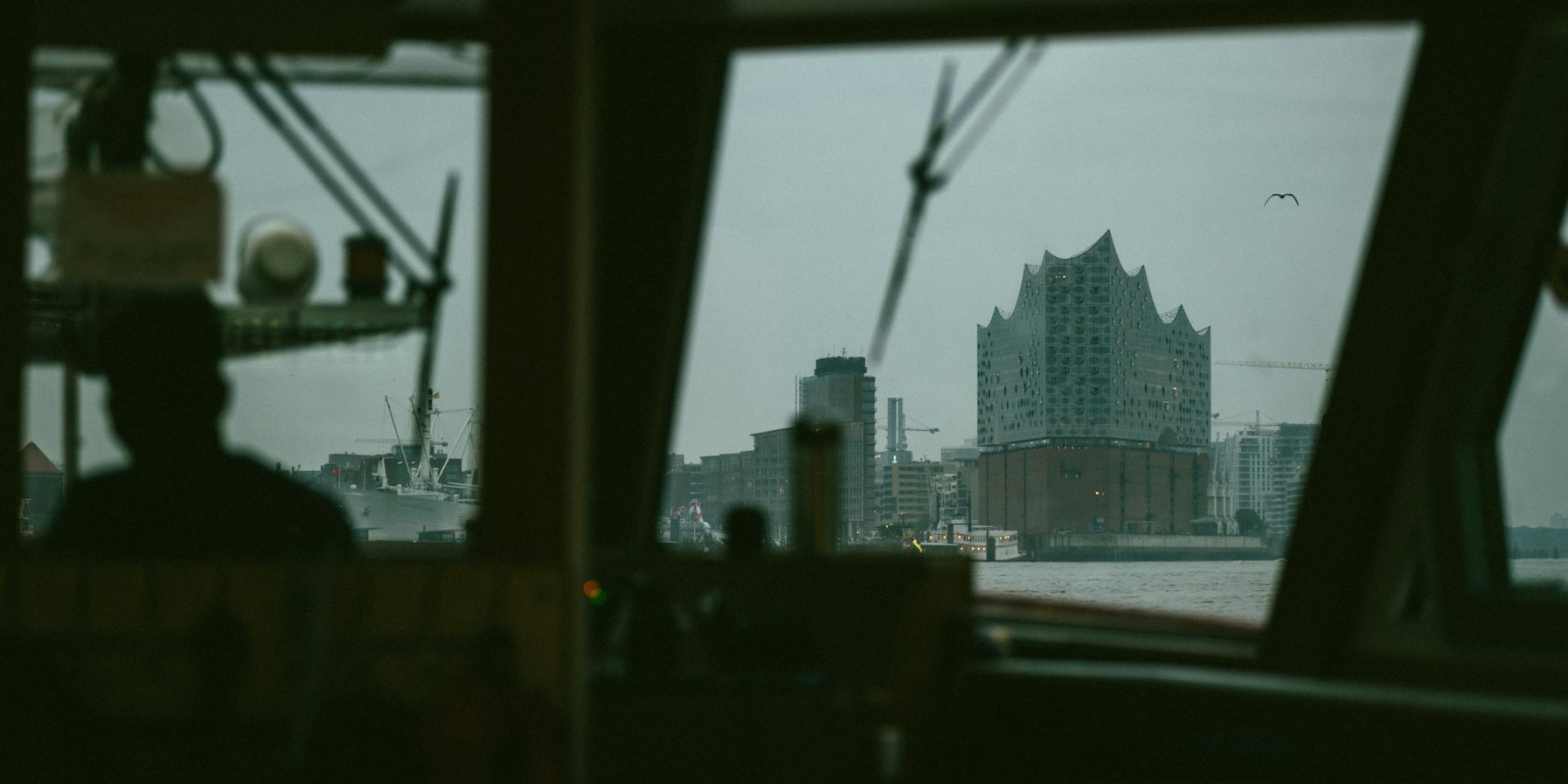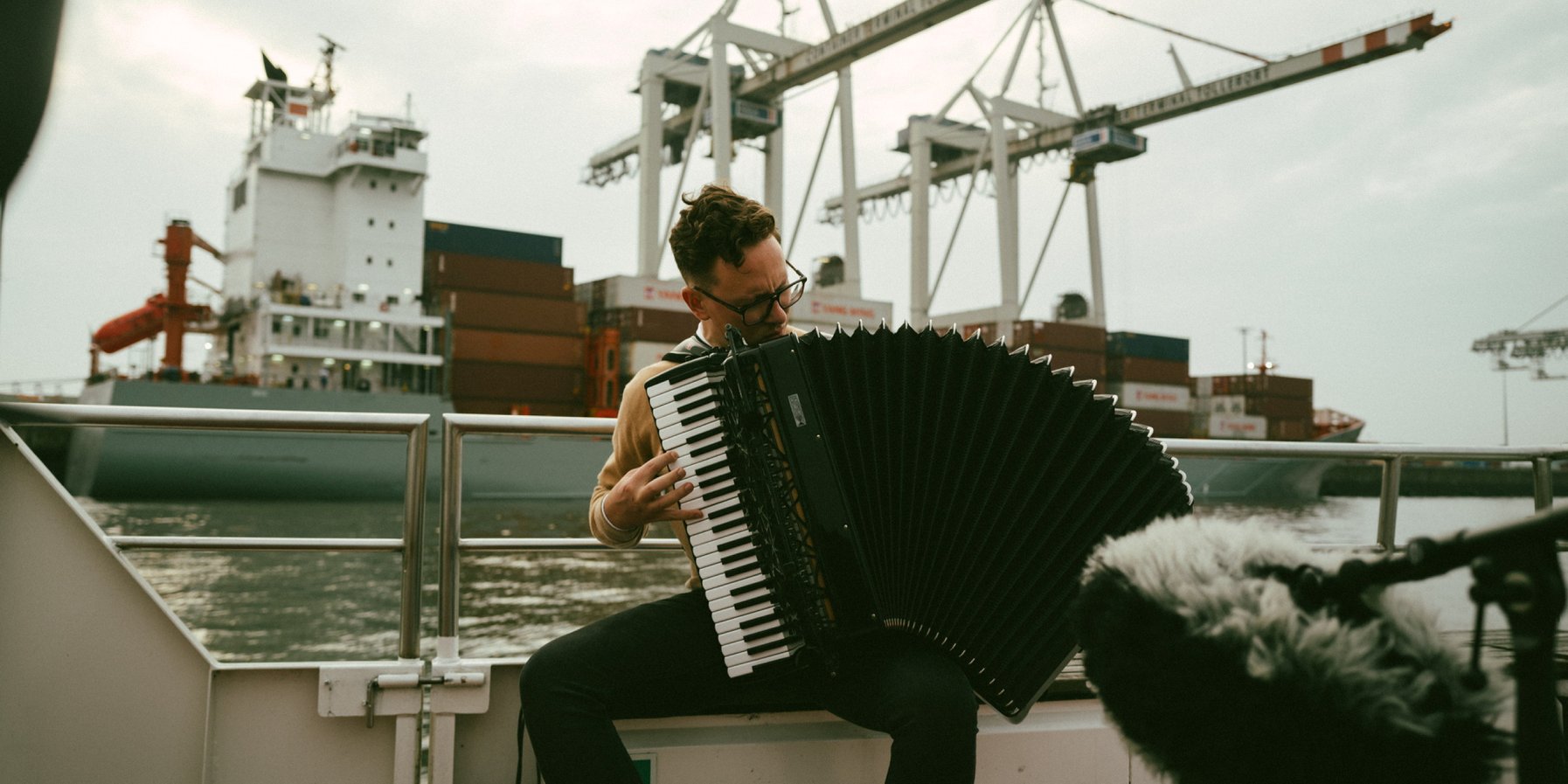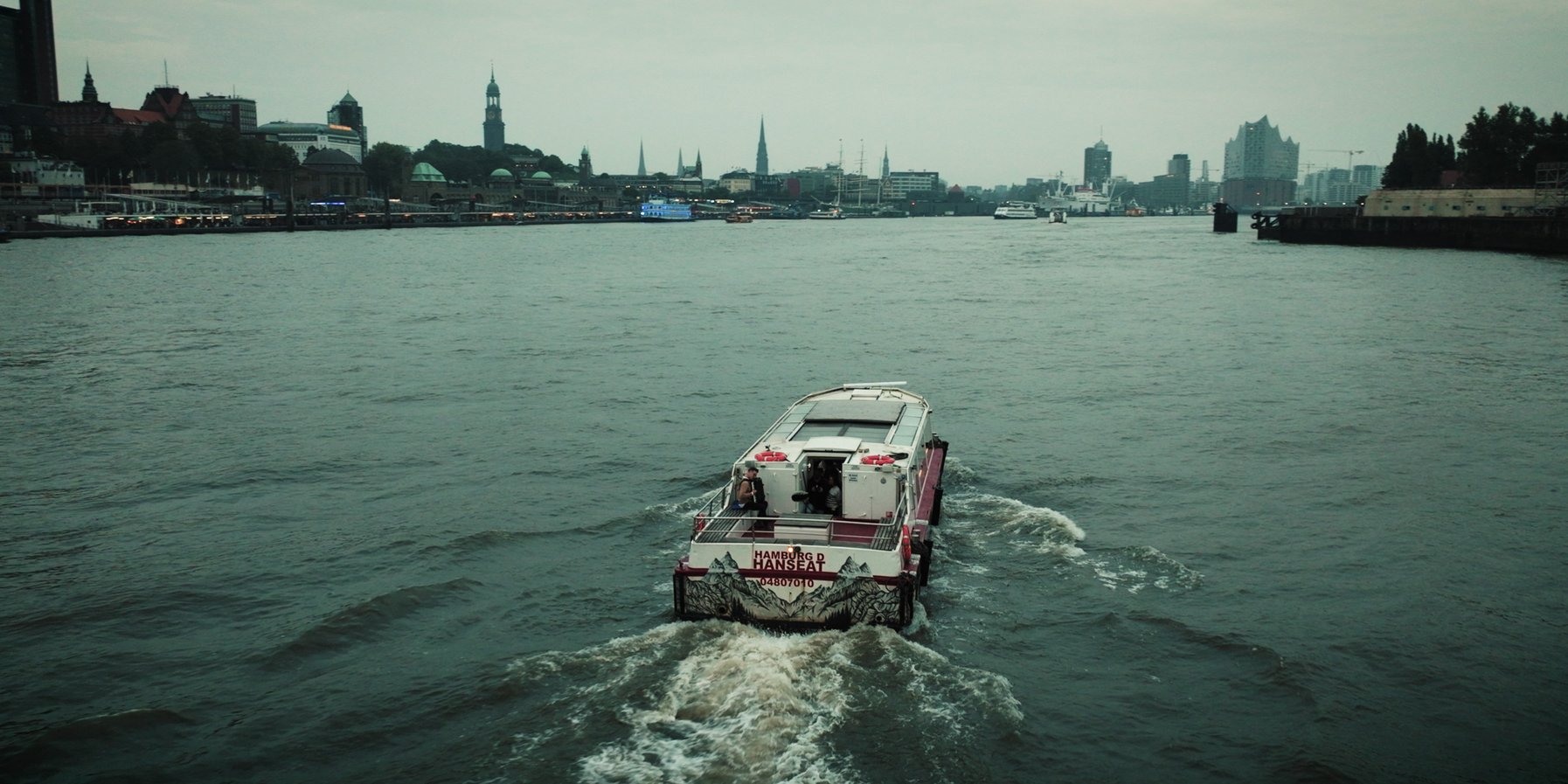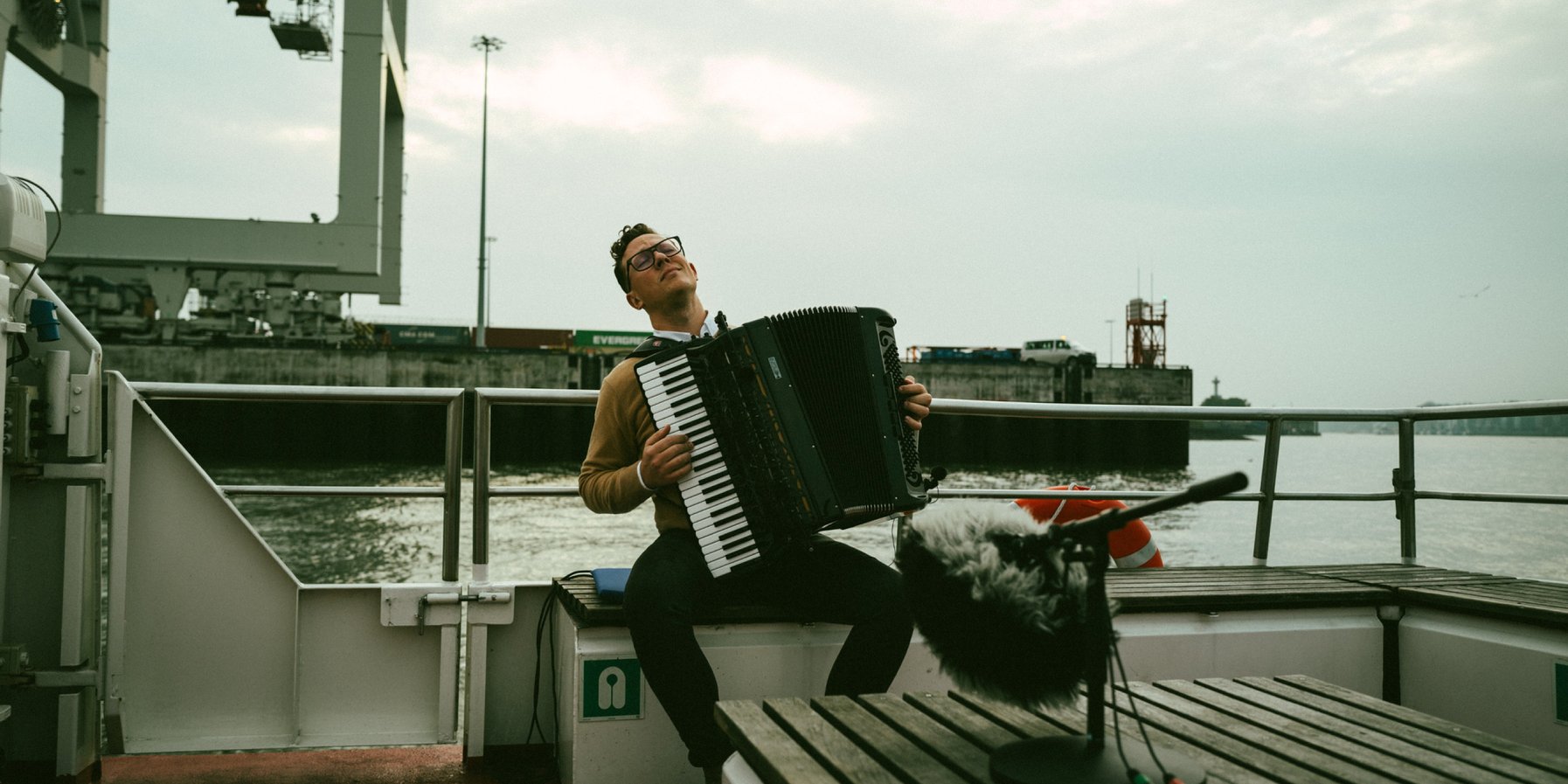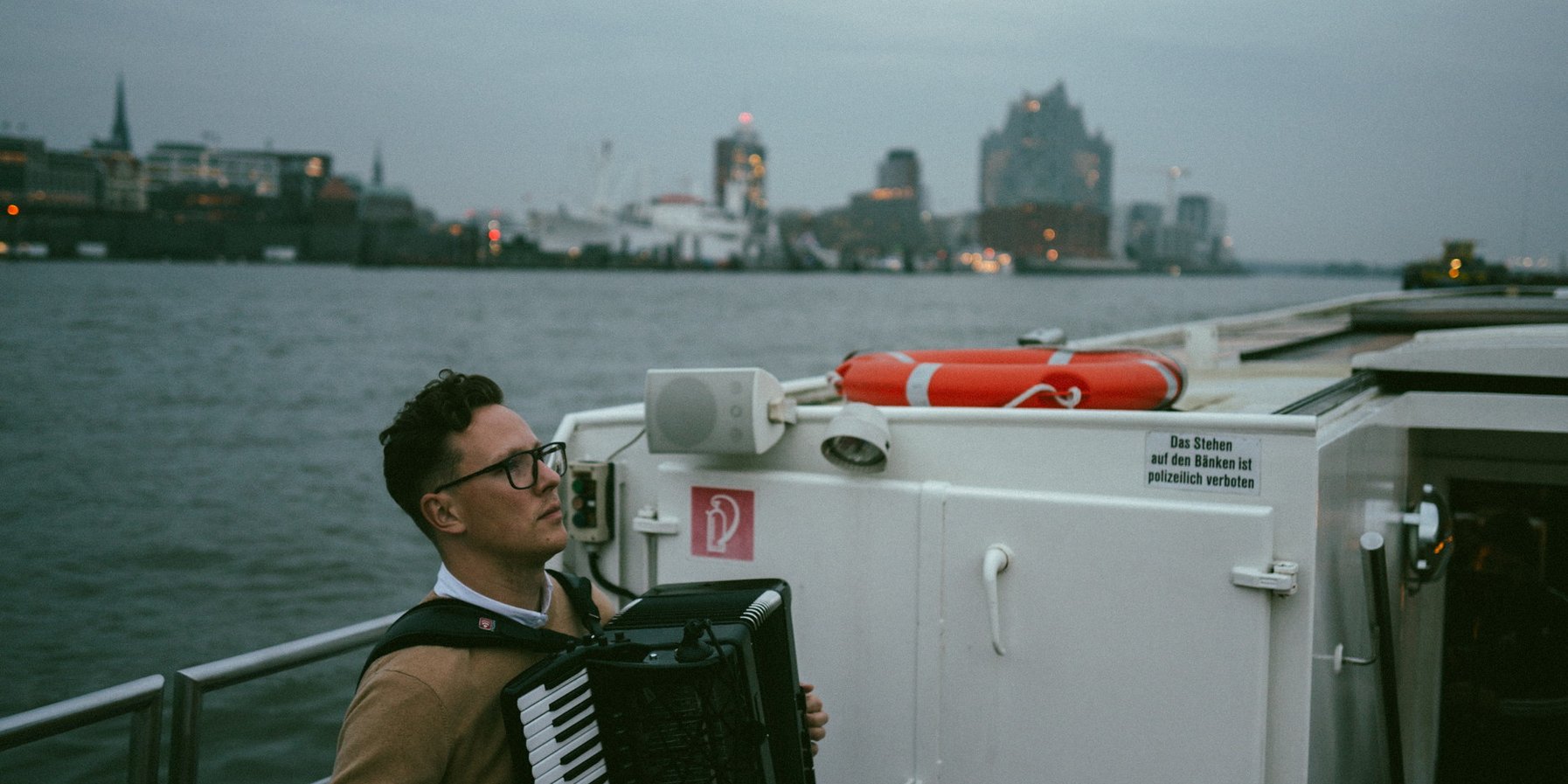»The man who reinvented the accordion out of the blue«, British newspaper The Independent raves about Martynas Levickis. The Lithuanian musician brings the accordion to the world’s major concert venues like no one else does. In doing so, he proves time and again that his instrument is more than just dashing sea shanties or melancholy tango. On his »magic bag of tricks«, as he calls his accordion, Martynas Levickis plays Bach and Vivaldi as well as Minimal Music by Philip Glass, Lady Gaga’s hit »Shallow«, Argentinian Tango Nuevo and folk music from his native Lithuania. Incredibly virtuoso and musical, he has long since expanded his fanbase beyond the world of classical music.
In his »Elbphilharmonie Session« live on the Elbe, he plays a touching slow movement by Bach and an eerily beautiful tango by Astor Piazolla, before heading back to the Elbphilharmonie on a motor boat with rousing music by Philip Glass.

The Artist
Martynas Levickis became a superstar overnight when he won both the Accordion World Championships in 2010, and the TV casting show »Lithuania’s Got Talent«. This was followed by his debut album, which went straight into the British classical-music charts. He has won numerous awards since then, including an Opus Klassik for Best Instrumentalist of the Year in 2023.
»My first musical fascination was actually with the piano. I never considered the accordion as an option. But we didn’t have a piano at home and my uncle gave me an accordion – that was it,« says Martynas Levickis when asked how he came to the accordion. Even though it wasn’t a piano, he quickly developed a fascination for the unusual instrument; as a young boy, he tried to imitate bird sounds on his children’s accordion. When he got his first full-size instrument, he had to practise in front of the mirror to see the keys.
Today Levickis, who has made Berlin his home, is a regular guest at the top concert venues, and is one of the most important ambassadors for his instrument. He enriches the accordion repertoire with both popular new compositions and sophisticated arrangements of a wide range of classics from Bach to Bartók. »It’s important that an arrangement sounds as if it was written for the accordion. I never want to imitate the sound of another instrument,« he explains.
»I want to popularise the accordion and show that the instrument has many faces.«
Martynas Levickis
Other participants:
Udo Potratz Sound Engineer
Julian Conrad Camera & Edit
David Lössl Camera Assistant
Jonah Hollwege Drone
Julian Conrad, Julika von Werder Production Management
The music
What a beautiful gift: the newly-married Johann Sebastian Bach (1685-1750) composed a whole series of French Suites for his wife Anna Magdalena – melodious sequences of stylised dance movements. Martynas Levickis, who counts Bach among his favourite composers, performs the fifth of these suites on the accordion on his celebrated album »Autograph« (2023). In his »Elbphilharmonie Session«, he plays the suite’s first movement – a soulful and allemande with a wonderful flow to it.
Astor Piazzolla (1921-1992), who like Martynas Levickis arranged many of Bach’s works for his bandoneon, also harboured a great love for Bach. But first and foremost, the Argentine musician became famous for bringing the tango out of the dance halls and into the concert halls. »My music makes people think. People who love tango and people who like good music,« he once said. His so-called Tango Nuevo is enriched by jazz as well as classical chamber music. It is not dance music, it’s music to listen to. The Piazzolla sound took the world by storm, providing a backdrop of longing in various film soundtracks, and it still fills concert halls from New York to Vienna to this day. His famous work »Oblivion« is a lyrical tango that was originally composed in 1984 for a film by Italian director Marco Bellocchio, and has since gained a permanent place in the concert repertoire in various arrangements.
Philip Glass (*1937), one of the forefathers of Minimal Music, also composed well-known film scores. With his catchy style, the American is one of today’s most popular composers. His secret recipe is reduction and simplicity – Minimalism. Last but not least, Glass and fellow composers like Terry Riley and Steve Reich created a very successful alternative to the top-heavy musical avant-garde of the 1960s. Philip Glass created entire worlds using pulsating triads and repeated notes. Soundtracks for films such as »The Hours« wrote music history. His piano etudes are also kept simple, luring in the listener with skilful small-step changes. »When I heard Etude No. 6 for the first time, I knew at once that I wanted to play it on the accordion,« recalls Martynas Levickis, who was already fascinated by Philip Glass as a child. No sooner said than done: when you hear his powerful arrangement, you quickly forget that this music was originally composed for the piano.
The Location
In the middle of the docklands, the Elbphilharmonie has become the city’s new landmark. The building’s spectacular glass facade and its unmistakable silhouette are prominent features of the city’s skyline and welcome incoming ships on the River Elbe. Surrounded by fast ferries and huge tankers, the traditional motor boats criss-cross the river, showing their guests not only Hamburg’s famous harbour, but also completely new views of the Elbphilharmonie from the water.
About the series
Artists record exclusive music videos at the Elbphilharmonie and the Laeiszhalle for Elbphilharmonie Sessions – sometimes in unusual locations offstage. Discover the concert halls from the inside. Discover what they sound like.
